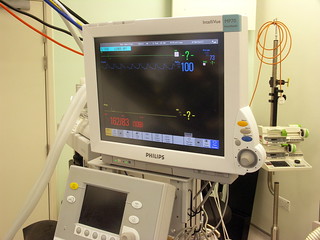Recent federal government statistics have shown that the healthcare industry continues to add jobs even as the rest of the American economy struggles to rebound. Yet the most surprising part about the recently released BLS report has to do with some of the specific jobs in healthcare growing faster than others. Near the top the list is the rather obscure category of healthcare informatics.

In general, informatics is the principle of using computer science and information technology to streamline and better manage a specific function. In terms of healthcare, informatics is the marriage of IT, computer technology, and health care services in such a way as to provide maximum benefit to patients through more efficient record-keeping and delivery systems. In plain English it involves managing a health care facility using as much technology as possible.
Informatics Jobs in Healthcare
In discussing healthcare informatics and the availability of jobs one of the first things that come to mind is a systems engineer, a software developer, or a database administrator. Those three are certainly part of the equation, but informatics runs far deeper than that. Given the fact that it involves both computer science and information technology, healthcare informatics spans an entire array of disciplines ranging from computer system design to infrastructure management to hands-on training of individual healthcare workers.
Whenever you have a business where computers are used extensively you have informatics. And healthcare facilities have a lot of computers and computer systems. Therefore, the importance of qualified workers in this field cannot be understated when you consider the scope of what we're dealing with.

Today's modern hospital uses computer technology for virtually every task performed. Even in the laundry and kitchen facilities modern equipment is computerized and interconnected through various networks. A facility without a competent and fully trained informatics staff is one that will suffer innumerable breakdowns of internal systems. In other words, computers and IT have outgrown the back office staff and their record keeping chores.
Breaking into the Informatics Field

Jobs in healthcare informatics are so varied there'd be no way to list a black-and-white set of qualifications a worker would need to land an individual job. But we can say that, at a minimum, most informatics position would require either a degree in computer science or a combination of education and practical work experience in information technology. That could mean 4 to 6 years in a combined educational program that involved both computers and the basics of medical administration. It could also include 4 to 8 years of hands-on experience working in an IT environment. After working in this industry and gaining the necessary experience, it is easy to see how people grow and transition into other fields. Gaining an MBA specializing in healthcare management is a great degree to help move into a higher position.
No matter how you look at it, informatics is yet another healthcare related field in which the demand for available workers is high. The BLS estimates it has grown by about 36% over the last five years as compared to an average 9% across all the rest of the main healthcare disciplines. The opportunities in healthcare informatics are virtually unlimited for students willing to pursue their education appropriately.
About The Author:
Jane, from comphealth

